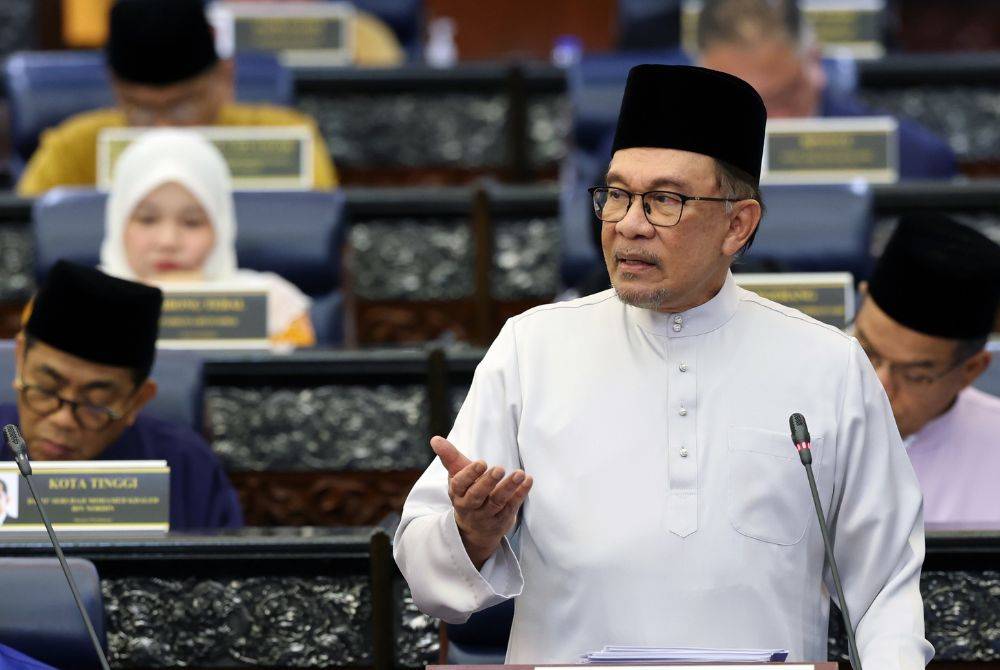Explainer: What is the T15 group mentioned by Anwar in 2025 Budget?
While the term ‘T15’ caught the public's attention, its full definition remains under development, prompting both anticipation and confusion among various stakeholders.

SHAH ALAM - During the tabling of Malaysia's Budget 2025, Finance Minister Datuk Seri Anwar Ibrahim introduced a new classification called the ‘T15’, a group that will face a gradual reduction in subsidies as part of the government’s efforts to redistribute resources more effectively.
While the term ‘T15’ caught the public's attention, its full definition remains under development, prompting both anticipation and confusion among various stakeholders.
What did Anwar say during 2025 Budget?
In his budget speech on Oct 18, Anwar highlighted that the government is working to ensure that subsidies, particularly for RON95 fuel, would be better targeted.
He revealed that the wealthiest 15 per cent of Malaysians, referred to as the T15, along with foreigners, had been benefiting disproportionately from government subsidies.
He highlighted foreigners and the top 15 per cent of consumers, referred to as the super-rich, benefit from 40 per cent of the government's RON95 subsidies, which amount to an estimated RM8 billion annually.
Anwar suggested that these resources would be better allocated to sectors like healthcare, education and public transport. He also emphasised the need for targeted subsidies.
The T15, comprising the highest-earning households, will see a reduction in subsidies starting mid-2025, affecting fuel, education and other public services.
However, 85 per cent of Malaysians are expected to remain unaffected by these changes, as the plan focuses on the wealthiest households.
Refining the T15: Economy Minister’s take
Following Anwar's announcement, Economy Minister Rafizi Ramli provided further clarity on the government's approach to defining the T15 group.
He assured the public that the classification would not be based solely on household income but would account for several other factors.
"I can confirm that the new method will not depend solely on gross household income. We are currently working on improvements based on net household income and several other factors."
"Once that is finalised, we can then set the statistical lines (for population groups) such as B40 and T15,” he said.
Rafizi explained that variables such as locality, basic household expenditure and overall quality of life will be considered to make the classification fairer.
According to him, the goal is to ensure a more equitable distribution of subsidies.
"We want to make it fairer than before. We have to consider many variables and not treat everyone the same.
"The problem now is that I know the media and social media (users) want to know everything (about the classification).
"But we are looking at a country with a 30 million population. So, we first need to determine how many variables we should use to ensure fairness,” he said.
Rafizi also dismissed social media claims that the T15 classification would be based solely on salary, clarifying that the subsidy decisions would take into account various factors beyond income alone.
Opposition’s criticism
Not everyone is pleased with the premature announcement of the T15 classification.
Muar MP Syed Saddiq Syed Abdul Rahman voiced his frustration over the government's approach.
He questioned why the T15 group was mentioned in the budget speech when its definition was still under refinement.
The former Muda president took to X (formerly Twitter) and questioned the government's approach.
"How come the government could announce in the budget that the ‘mahakaya’ (extremely wealthy) enjoys RM8 billion in (RON95) petrol subsidies (a year)? Do not ‘announce first, think later’. People’s lives are at stake,” he said.
Syed Saddiq's remarks reflect the sentiment that premature announcements without clear definitions could lead to unnecessary confusion and concern among Malaysians.
The lack of a finalised definition for the T15 raised concerns about transparency and fairness in how the changes will be implemented.
On the other hand, Pas grassroots leader Dr Mohd Mazri Yahya cautioned the government against unfairly labelling the T15 group as ‘ultra-rich’.
He argued that the T15 classification might include households that were only marginally wealthier than those in lower income brackets.
“Not only with certain subsidies, but also with school and university admissions, electricity usage, and now even petrol usage.
"There is nothing wrong with contributing back to the people, especially in these trying times, but do not use unreasonable terms like ‘ultra-rich’ and such,” he said in a Facebook post.
He warned against overburdening this group and urged for more reasonable mechanisms to implement subsidy reductions.
Insights from an economist
Economist Professor Emeritus Dr Barjoyai Bardai offered a broader perspective on the T15 group.
He said only about three per cent of the population falls under the T15 classification, equating to roughly one million Malaysians.
These households typically have monthly incomes exceeding RM13,000, but Barjoyai pointed out that many in this group would not need to work because they inherit substantial wealth.
“This group does not need to work as their families are already wealthy and they do not require government assistance.
“They should also be taxed at a higher rate, but they have not been taxed before because most of them do not work. They merely receive dividends each year and these dividends are not taxed in Malaysia.
“Hence, after the budget announcement yesterday, this group will be included in the tax network moving forward,” he explained.
Barjoyai supported the proposed introduction of a dividend tax, which Anwar announced would be imposed on individual shareholders earning over RM100,000 annually from dividends starting in 2025.
He added that the move was crucial for more equitable tax collection.
While details of the T15 classification were still being worked out, the conversation around this new classification has sparked debate across political and social circles.
As the government refines the definition and implements changes in mid-2025, the public remains watchful of how these policies will affect various income groups, particularly the so-called ‘wealthiest’ Malaysians.











